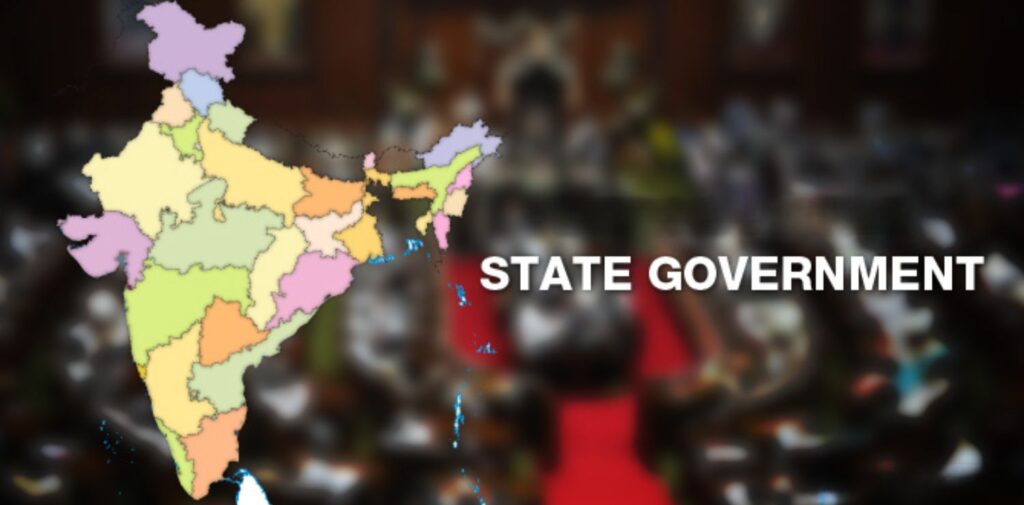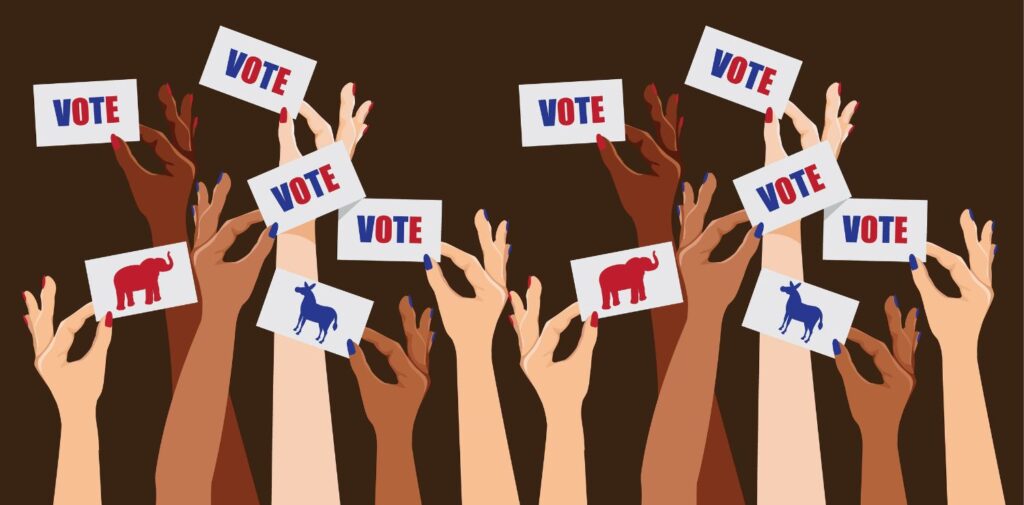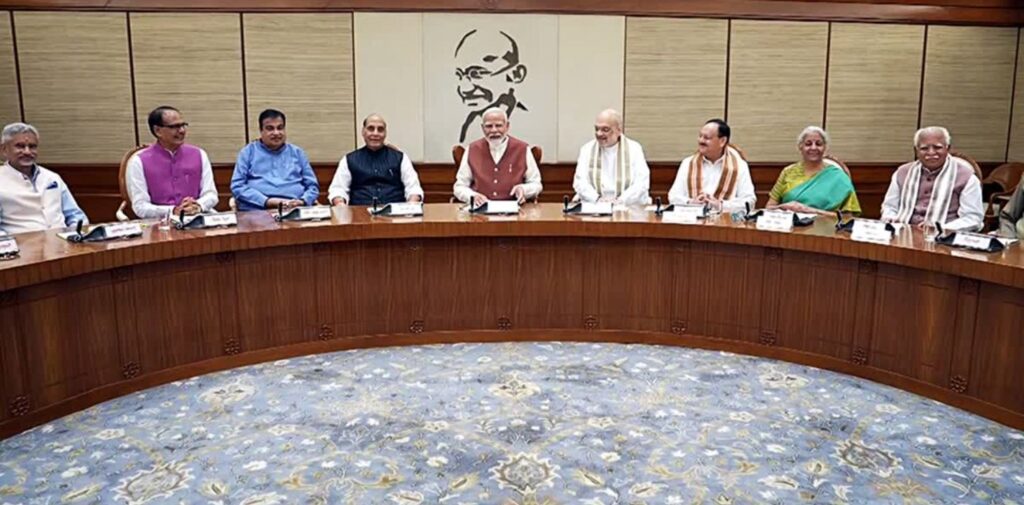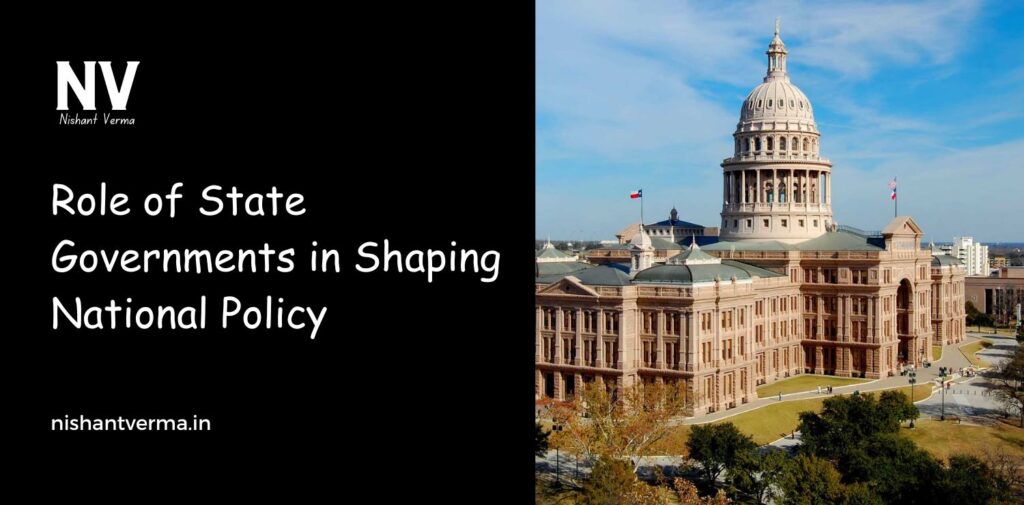In a big country like India, there are many important parts that help the country run smoothly. One of the most important parts is the government. But, did you know that India has two kinds of governments? There is the Central Government and the State Governments. Both of these work together to run the country, but they have different roles and responsibilities. In this article, we will learn about the role of State Governments in shaping national policies and how they influence the country’s decisions.
What is a State Government?
India is divided into 28 states and 8 Union Territories. Each of these states has its own government. This is known as the State Government. The State Government is responsible for the development and administration of its own state. The state government handles matters that are important for the people of that state, like education, healthcare, agriculture, law, and order, and even transport.
The State Government works under the Indian Constitution which divides the responsibilities between the Central Government and State Governments. This helps to ensure that both governments can focus on what is most important to them, without getting in each other’s way. The State Government can create its own laws on many issues, but there are some areas where the Central Government has more power.

How State Governments Affect National Policy
Although State Governments mainly deal with local issues within their own state, they also play an important role in shaping the policies that affect the whole country. Here’s how:
Representing the People
Each state has a different culture, language, and set of problems. For example, the needs of people in Kerala are different from those in Uttar Pradesh or Rajasthan. The State Government understands the issues faced by its people and can push for solutions that are best suited to its region.
When state governments have strong views on certain issues, they bring these views to the attention of the Central Government. In a democratic country like India, this is very important. The Central Government listens to these opinions and sometimes changes its national policies to suit the needs of the people in different states. This process helps make national policies more inclusive and better suited to the diverse people of India.
Making Laws that Support National Interests
State Governments can make laws in several areas like health, education, and agriculture. Sometimes, the laws made by State Governments can help solve national issues or challenges. For example, a state might develop a new way of teaching children that becomes very successful. The Central Government might then decide to adopt this idea across the entire country.
Similarly, when state governments create policies to improve agriculture, education, or healthcare, these ideas can be shared and applied in other parts of India. The government of India can then build on these successful policies at the national level, improving the lives of citizens everywhere.
Cooperation with Central Government
State Governments and the Central Government need to work together to solve big problems that affect the entire nation. Some issues like climate change, economic growth, and infrastructure need the cooperation of all states. For example, if a state has a problem with floods, other states and the Central Government can provide help and support.
State Governments are also involved in national decision-making through the Rajya Sabha (Council of States), where representatives from all states meet and discuss important national issues. In this way, the voice of the state government is heard at the national level.

Political Influence
State Governments often play a major role in national politics. Political parties in India have their branches in different states. These parties help to form the government at both the state and national levels. When state governments are controlled by a particular party, they can influence the policies of the Central Government. Sometimes, if the Central Government belongs to a different party than the State Government, there can be disagreements, but this can also lead to new ideas and better solutions for the country.
An example of this is the way state governments have influenced economic policies in India. For example, the state of Gujarat has a strong focus on business and industry. Its government has made policies to encourage business growth. The Central Government noticed these policies and used them as examples for the entire country.
Ensuring Equal Development Across the Country
The State Governments ensure that all parts of India grow and develop in a balanced way. In a country like India, where there are rich and poor regions, the state governments have a responsibility to make sure that their state’s development is in line with the national vision. For example, the government of a state like Bihar might focus on improving education and infrastructure because it is still developing. Meanwhile, a state like Maharashtra might work on industrial growth.
When all the states work toward their development, they contribute to the overall growth of the country. This leads to a balanced and fair distribution of resources and opportunities. The Central Government takes input from the states and works toward equal development across India.
Emergency Response and Disaster Management
During times of crisis, like natural disasters (floods, earthquakes, or cyclones), the state governments play a critical role. They are the first to respond and help the people in need. At the same time, the state government often works with the Central Government to bring in more help, supplies, and resources.
In recent years, the role of state governments in dealing with the COVID-19 pandemic showed how important their role is in national policy. Each state had to create its own rules and strategies to fight the virus, while also working together with the Central Government to fight the pandemic at a national level.
Education and Language Policies
One important area where state governments have a big role is education. India is a land of many languages, and each state has its own official language. State governments decide how schools in their state will teach the children, what languages they will use, and what type of curriculum will be followed.
While the Central Government also sets some basic rules, the state governments can adapt the education system to suit the needs of the children in their state. They may also make policies about promoting certain languages or making education more accessible to everyone, including people in remote areas.

Challenges Faced by State Governments
Even though state governments play an important role in shaping national policies, they face many challenges. Some of these include:
- Financial Issues: States need money to carry out their plans. Sometimes, the Central Government might not provide enough money for states to work on their projects, especially in poorer states.
- Cooperation with the Central Government: If the Central Government and State Government are from different political parties, it can be difficult to work together. Disagreements can slow down the progress of important projects.
- Managing Natural Resources: States with large natural resources, like coal or water, sometimes face challenges in managing these resources. They must make sure that the resources are used wisely for the benefit of the people, while also following national policies.
Conclusion
State Governments in India are very important because they ensure that the country remains united, diverse, and prosperous. While they focus on local issues, their decisions, policies, and actions often have a big impact on the national level. Whether it’s representing the people, influencing national policies, or ensuring equal development, State Governments work side by side with the Central Government to make India a better place for everyone.
In India’s system of democracy, the cooperation and understanding between State Governments and the Central Government is essential to making sure that the country remains strong, peaceful, and progressive.




